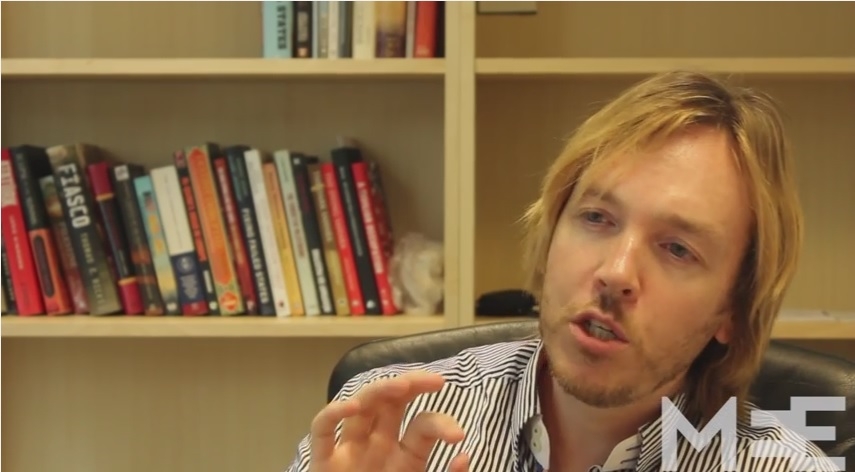Video: Christopher Davidson on the Islamic State's funding and strategy

Christopher Davidson, author of After the Sheikhs: The Coming Collapse of the Gulf Monarchies and reader in Middle East politics at Durham University, spoke to MEE about his thoughts on the Islamic State’s funding and future strategy in Iraq and beyond.
Davidson goes against what he calls the “conventional narrative” of believing IS has been self-funded, saying it is likely “considerable funding has been flowing in” from regionally based, as well as international, sympathisers.
Discussing where the group will head next, Davidson said: “my guess is they are attempting to create dominance over Sunni parts of the Middle East and perhaps even eventually the Arabian Peninsula”.
Saudi Arabia has sought to convince the international community that IS threaten them, says Davidson, which has proved useful for Saudi authorities who want to put distance between themselves and accusations they are funding the group.
The threat posed by IS, however, may not come from outside the borders of Saudi Arabia, he says, but may be determined by the level of support it enjoys among Saudi citizens:
“More recently we’ve seen a realisation the threat might be real, that there might be a fifth column as it were, in the Gulf monarchies…that would ultimately support the Islamic State if it reached their borders. In this sense it’s not so much a question of how strong the Iraq army is…but how many people within the kingdom itself would actually rise up in support of the Islamic State.”
Middle East Eye propose une couverture et une analyse indépendantes et incomparables du Moyen-Orient, de l’Afrique du Nord et d’autres régions du monde. Pour en savoir plus sur la reprise de ce contenu et les frais qui s’appliquent, veuillez remplir ce formulaire [en anglais]. Pour en savoir plus sur MEE, cliquez ici [en anglais].




